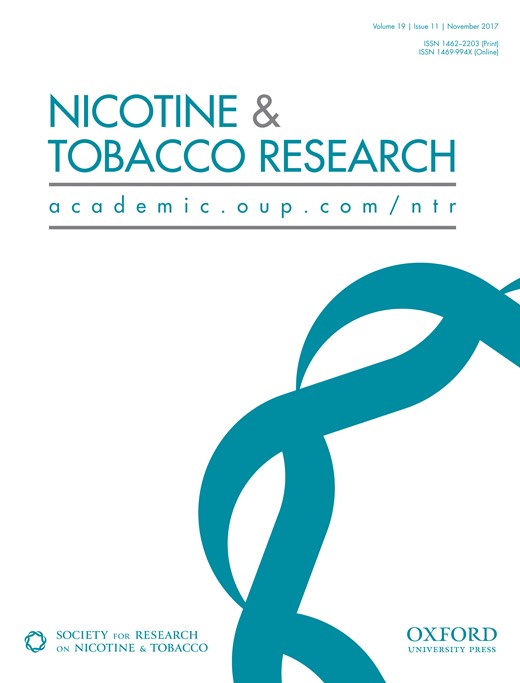-
Views
-
Cite
Cite
Katharina Rathmann, Timo-Kolja Pförtner, Frank J Elgar, Klaus Hurrelmann, Matthias Richter, The Great Recession, Adolescent Smoking, and Smoking Inequalities: What Role Does Youth Unemployment Play in 24 European Countries?, Nicotine & Tobacco Research, Volume 19, Issue 11, November 2017, Pages 1284–1291, https://doi.org/10.1093/ntr/ntw298
Close - Share Icon Share
Abstract
Conflicting evidence has been reported on smoking behavior among adults during times of economic downturn. No study has yet investigated young people’s smoking and inequalities in smoking during economic recessions. This study examines the association between country-level youth unemployment due to the economic recession and adolescent smoking and smoking inequalities in Europe.
The WHO collaborative “Health Behaviour in School-aged Children” study in 2009/2010 included 15-year-old adolescents from 24 European countries (N = 43 093). Socioeconomic position (SEP) was measured by the Family Affluence Scale. Logistic multilevel models were conducted. The absolute rate of youth unemployment in 2010 (during the recession) and the relative change rate in youth unemployment (2005/2006–2009/2010) were regressed on smoking and SEP inequalities in smoking in 2010, respectively.
Youth unemployment rates were not significantly associated with overall smoking in adolescents. A higher absolute youth unemployment rate in 2010 related to lower likelihoods of smoking among middle (OR: 0.99; 95% CI: 0.98–0.99) and low affluent adolescents (OR: 0.99; 95% CI: 0.98–0.99) compared to high affluent adolescents. In contrast, an increase in youth unemployment (2005/2006–2009/2010) was not associated with overall likelihoods of smoking and inequalities in smoking.
Our findings indicate that an increase in youth unemployment was not related to smoking and smoking inequalities. However, higher absolute levels of youth unemployment are related to lower likelihoods of smoking in lower SEP adolescents. Thus, smoking among vulnerable groups is more linked to the overall insecure circumstances and the affordability of cigarettes rather than to the economic recession itself.
Economic recessions have often led to increases in adult and youth unemployment rates. Conflicting evidence has been reported on smoking behavior among adults during times of economic downturn. This study examines for the first time the impact of the economic recession on young people’s smoking and socioeconomic inequalities in smoking. Findings highlight that rather than an increase in youth unemployment, the overall country-level youth unemployment rate is related to young people’s tobacco use and particularly to lower odds in smoking among less affluent adolescents across Europe, a finding which is likely to be linked to the affordability of tobacco use.






Comments